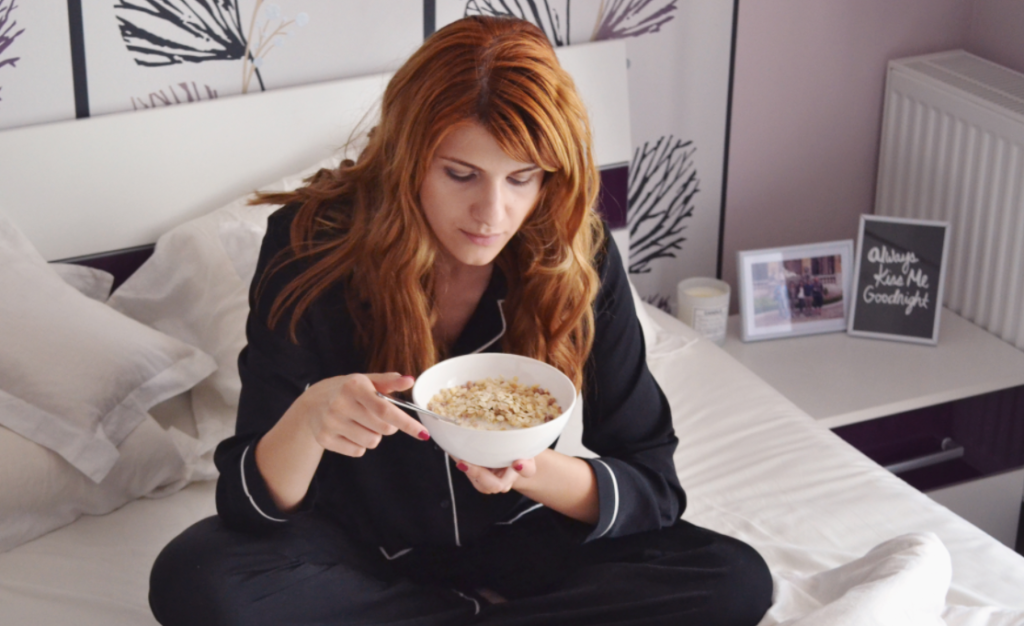8 Ways To Fight Fatigue With Food
March 7 2018
Fatigue is a very common complaint nutritionists hear and more often than not, they choose to accept that tiredness is the norm. However, this is far from the truth! We don’t have to live with feelings of fatigue and to help get your vitality back, here are eight ways to heal fatigue with nutrition.
1. Eat adequate fibre
Many of us miss the mark when it comes to eating enough dietary fibre daily. Fibre is not only crucial for digestive health but it also helps to slow the release of sugar into the bloodstream and therefore helps to stabilise blood sugar. By eating fibre rich foods at each meal, you will feel satisfied for longer and have a more sustained release of energy from foods. Fibre-rich foods include whole grains, fruit, legumes, nuts, seeds and vegetables.
2. Protein at each meal and snack
Including a source of protein at each meal and snack helps to regulate blood sugar levels and keep appetite stable. This, in turn, will help support energy levels. Some healthy protein options include lean meat (e.g. chicken or fish), eggs, yoghurt, cheese, nuts and seeds, legumes and tofu. If you don’t already, aim to mix up your animal-based protein choices with plant-based protein options. A handy plant-based source of protein is hemp seeds. They are great sprinkled on soups, salads and porridge, added to dips and stirred through yoghurt as a quick snack.
3. Eat more magnesium-rich foods
Stress and fatigue often go hand in hand especially in the case of being burnt out! Magnesium plays an important role in the functioning of the nervous system. Unfortunately, both mental and physical stress can cause the increased elimination of magnesium from the body. This, in turn, inhibits our ability to deal with stress. If you have gone through a period of stress or live life in the fast lane generally, make sure your diet includes a wide variety of magnesium-rich foods such as green leafy vegetables, avocado, nuts and seeds, broccoli, asparagus and legumes.
4. Eat enough pre and post work out
Many of us neglect pre and post workout nutrition and this can have a very negative impact on our energy levels. If we arrive at exercise time low on fuel we will feel fatigued during the session and are more likely to work out less effectively and feel poorly afterwards. Similarly, if we don’t refuel correctly following an exercise session, we may suffer from insatiable appetite and low energy! If your last meal or snack is many hours before a session, have a small carbohydrate-rich snack prior to exercise such as a banana and post-exercise, refuel with a protein and carbohydrate-rich snacks such as a fruit, yoghurt and hemp seed smoothie or thick greek yoghurt with berries.
5. Don’t ditch carbs
Carbohydrates are a really important part of a balanced diet and should not be feared. The brain is a very energy hungry organ and requires a constant supply of energy. Carbs are needed at each meal to fuel this supply, otherwise, we are left lacking concentration. Additionally, carbs are a great supply of B-vitamins, which are involved in the metabolism of carbohydrates and fats and help energy production in the body.
6. Maintain adequate hydration
Adequate hydration is critical for overall well-being especially when it comes to concentration, alertness and overall energy.
If you struggle to drink enough water during the day, here are some easy ways to increase hydration:
- Swap coffee for herbal tea
- Add fresh sliced fruit to water for extra flavour
- Have a vegetable soup for lunch
- Snack on vegetables and fruits with a high water content (e.g. capsicum, cucumber, strawberries)
- Get up from your desk and have a glass of water every 30 minutes
7. Support the thyroid gland
The thyroid gland regulates our metabolism and its function can impact energy levels. Iron, zinc, iodine and selenium are all needed by the thyroid to convert inactive thyroid hormone into active, the form used by the body. If our dietary supply is low, this conversion may be hampered and leave us with feelings of fatigue. Make sure you are eating enough of the below source of iron, zinc, iodine and selenium daily:
- Iron: red meat, almonds, apricots, parsley, spinach, lentils and sunflower seeds
- Zinc: beef, capsicum, egg yolks, ginger, oysters, pumpkin seeds and whole grains.
- Iodine: seafood, seaweed, asparagus, dairy, mushrooms and sunflower seeds
- Selenium: brazil nuts, alfalfa, celery, eggs, fish, garlic, cashews and tuna.
8. Reduce intake of caffeine
Whilst it might at first seem counter-intuitive, it is important to reduce your intake of stimulants. Caffeine is a central nervous system stimulant and in small amounts can be very beneficial for mood, alertness, concentration and boosting energy levels. However, caffeine puts the body into the ‘fight or flight mode’ and over time this can deplete the central nervous system. In addition, high intakes of caffeine may deplete magnesium and calcium and impact our ability to absorb iron. Reassess your caffeine intake and if caffeine is adding to feelings of anxiety or irritability, it’s important to recognise this and opt for a calming drink such as herbal tea or a fruit and vegetable juice.
Sourced from Women’s Health.
